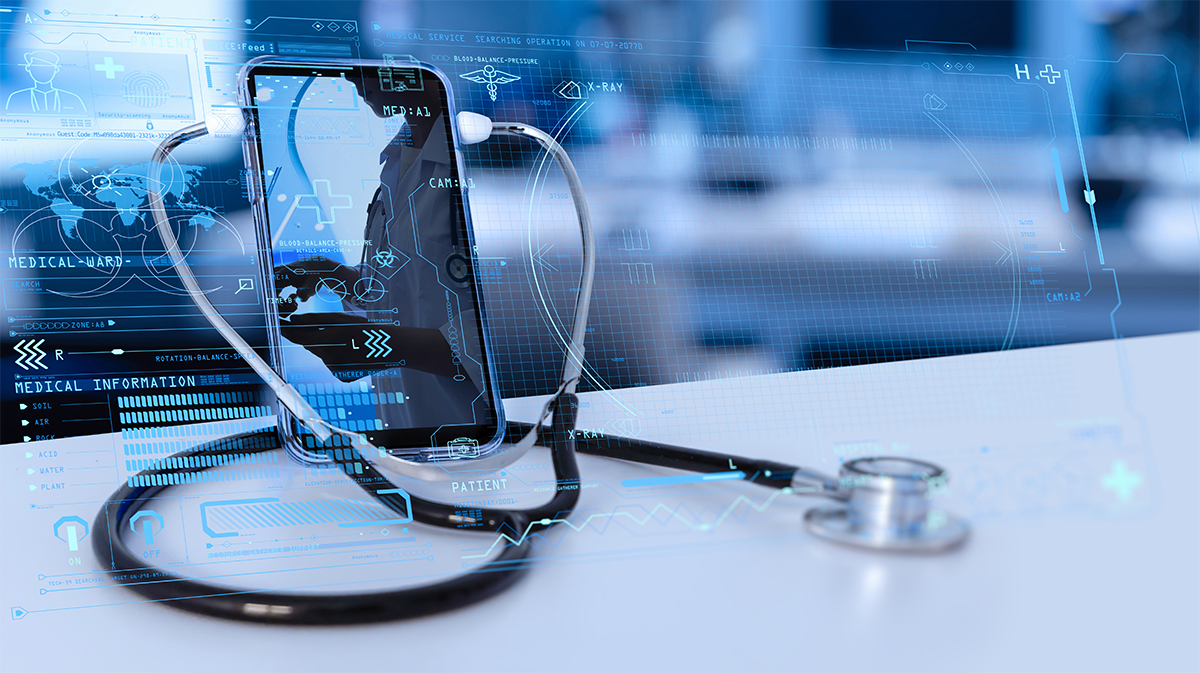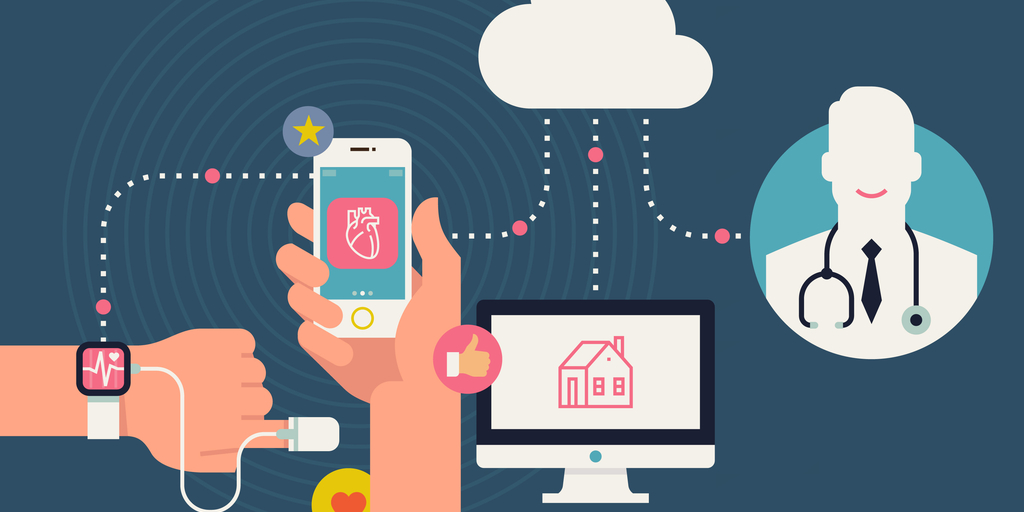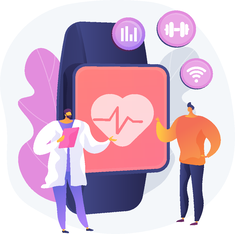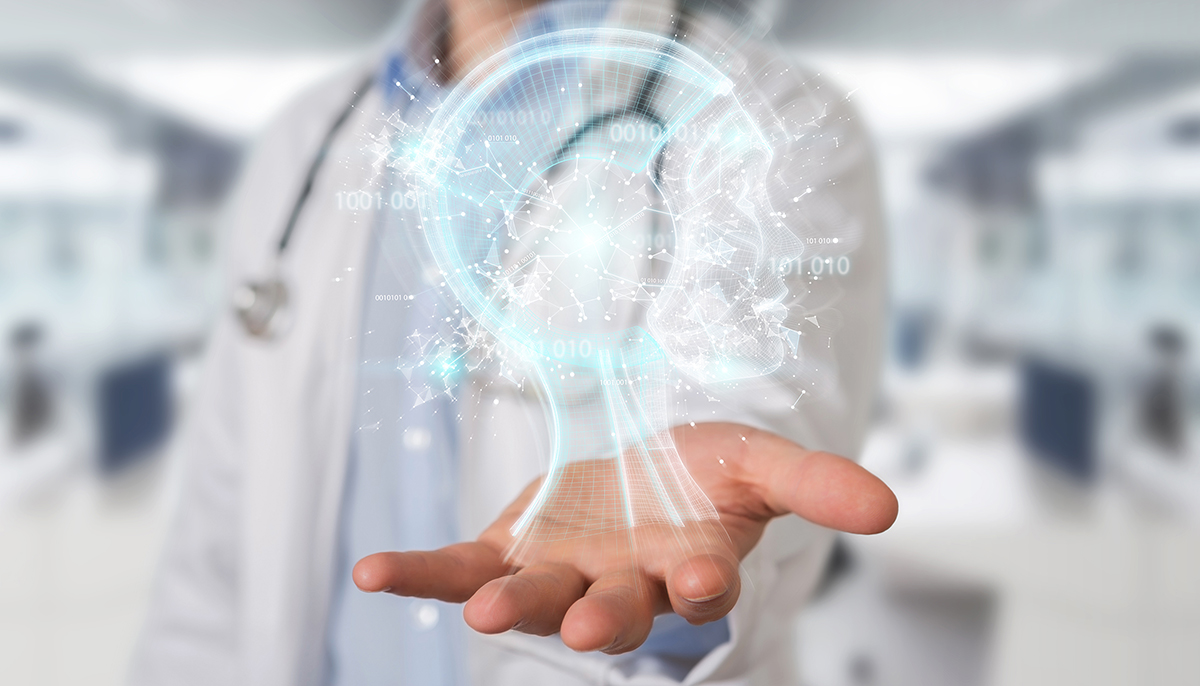The rise of Internet of Things technologies has led to billions of connected devices around the world. When combined with artificial intelligence (AI), these edge devices can become more intelligent and make better real-time decisions.
With the number of IoT devices worldwide forecasted to nearly triple from 8.74 billion in 2020, to over 25.4 billion IoT devices in 2030, AI is primed to play a significant role in creating smarter IoT edge devices.

Thanks to the convergence of on-device intelligence with AI and machine learning (ML) capabilities, simple self-contained machines have turned into intelligent devices. Enabled with edge AI, these devices can communicate with other devices and act in real-time, unlocking new use case with substantial benefits—especially in health and wellness:
Benefit 1: Real-Time Health Insights

Devices driven by edge AI offer more benefits for users than typical IoT devices. Beyond the uninterrupted monitoring of key metrics, such as blood oxygen and pressure, heart rate, perspiration, and glucose levels, edge AI can generate additional insights over time.
For example, a device can define a standard normal range of vitals, and then recommend specific diets or exercises to improve the user’s overall health. Thanks to the convergence of on-device intelligence with AI and Machine Learning (ML) capabilities, a device with edge AI can provide users with live responses based on real-time data.
Based on the data collected, the device can alert the user of any irregularity, and even make appointments with doctors based on the user’s calendar and availability. This capability can be invaluable for senior citizens living alone, or even professionals with hectic schedules.

Benefit 2: Improve Medication Adherence
With edge AI, a device can generate reports and insights for the user to review, share, and adjust based on behavior changes over time. Through a combination of education, incentives, feedback, and reminders, devices can push their users to adhere to their medication and wellness needs.
With real-time data available, caregivers knows exactly when a dose has been skipped, or if the medication has run out. In the event of a medical emergency, the device can call for help and notify immediate contacts.
For patients who have a stubborn resistance when it comes to drug compliance, edge AI can either educate, remind, or gamify the process to encourage them to heed advice from doctors and family members.
Benefit 3: Preventive Care

Finally, one of the most appealing benefits for edge AI is the potential for preventive care. Devices would be capable of detecting patterns and biomarkers that indicate the onset of specific diseases and conditions.
By alerting users early, they will be able to seek early treatment and take preventive measures. For example, if you became ill with a novel virus, your device can alert you about the illness. With the expertise of a Harvard-trained doctor, and the latest medical knowledge on hand, your device can provide timely advice and guidance.
It can tell you to go home early, avoid your workplace, and arrange an appointment at an urgent care center. Your device can even coach you on a sleeping and eating schedule to recover as quickly as possible. With this kind of features, edge AI can help stop the next worldwide pandemic before it even begins.
How Ambiq Contributes
Health and wellness devices require reliable and ultra-low-energy components to make the most of edge AI technology.
Since these devices continuously collect health data at the edge, their processors must be able to perform these tasks on a low electrical charge. System on Chips (SoCs) such as Ambiq’s Apollo series can enable wearables to last for days or even weeks on a single charge.
Built on our patented Sub-threshold Power Optimized Technology (SPOT®) platform, Ambiq’s products reduce the total system power consumption on the order of nanoamps for all battery-powered edge devices. Simply put, our solutions enable edge intelligence everywhere.

